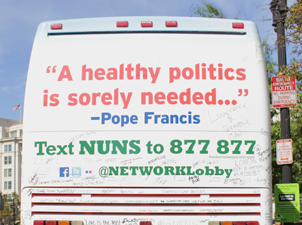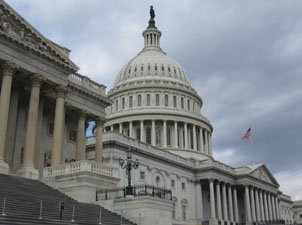
NETWORK Celebrates First Step Act Becoming Law
Joan Neal
December 21, 2018
NETWORK congratulates Congress for passing the FIRST STEP ACT with strong bi-partisan support and becoming law. It is rare to see any legislation pass with such backing from both sides and we commend all those who worked so hard to achieve this victory.
While the law offers only modest changes, it begins at long last, the process of making some much-needed improvements to the federal criminal justice system. Among its more laudable provisions, the legislation reduces the mandatory minimum sentences for certain drug offenses, gives judges more leeway in sentencing, revises the ‘good time’ credit calculation, improves conditions in federal prisons, including prohibiting the use of restraints on pregnant incarcerated women, and provides additional resources for rehabilitation, job training, and recidivism reduction programs that increase the chances for success for those who will eventually re-enter society.
At the same time, some of the provisions fail to go far enough. Many of the sentencing reductions are prospective–forward looking only. This potentially leaves thousands of people in prison, continuing to serve time under the very outdated laws this bill revises. Additionally, it allows private prison companies to profit, fails to address parole for juvenile offenders, and exposes inmates of color to the possibility or disparate treatment due to racial bias in the risk assessment tool. As its name implies, the FIRST STEP ACT is a beginning, a place to start to make our federal criminal justice system more just and humane.
Nevertheless, we commend lawmakers for taking this ‘first step’ at reform. Clearly, there is more work to be done to reduce the number of people entering the system, to eliminate racial disparities and to create second chances for all those impacted. Our faith teaches us that redemption and rehabilitation are possible even for people who have committed crimes against society and our criminal justice system should reflect that value. This can be the beginning of such transformational change.















